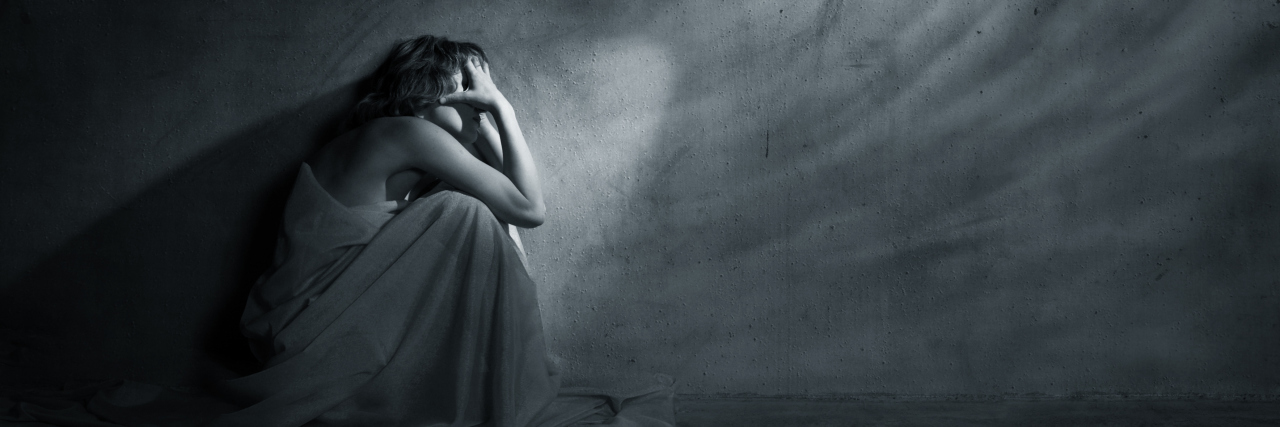Surviving the Aftermath of Hurricane Maria as a Puerto Rican With Borderline Personality Disorder
Editor’s note: If you experience suicidal thoughts, the following post could be potentially triggering. You can contact the Crisis Text Line by texting “START” to 741-741.
From now on, everything is going to be “life before and after Maria.”
There used to be days when I only dragged myself out of bed, forced some breakfast down my throat, and looked forward to the end of my workday. In the last two months, aside from all that, I have to add tiredness, anger, emptiness, sadness, and suicidal and self-harming thoughts on a daily basis — that’s Hurricane Maria’s aftermath.
Over the past two years, I have been in dialectical behavior therapy (DBT) for borderline personality disorder (BPD). My psychologist told me I was doing great, but I was afraid this hurricane would take all that progress away. For that reason, I took the crisis-survival and emotion-regulation skills modules, and packed my self-soothing kit in a safe and visible place.
I will never forget the nightmare of waking up at 3 a.m. with the roaring sound of wind against my bedroom windows; it was terrifying. We live in a solid concrete house in the urban area of Puerto Rico, so we were prepared for a hurricane, but we could have never imagined what was coming and, worse, its aftermath.
Planning for my worst mental breakdown was the key to make it through the horrifying howling of the wind, the waterfall streaming down the stairway of the house, turning it into an indoor lake, the pounding of glass windows and doors, and the sight of neighbors’ wood and zinc panels crashing with the few cars parked outside.
Just before dawn, when I thought I was losing my mind, a light shade of gray could be seen outside. The scariest part — night — was over, but Maria was far from being over with our island. Even when the winds had receded, rain wouldn’t stop pouring down and debris had clogged all the sewerage, making it impossible to drain as fast as it was needed.
However, after more than 36 hours of winds and rain, Maria left.
During the first two weeks, it was impossible to communicate with anyone unless we had a landline. News was only for the outside world. All we could do was look around us in sadness and try to be positive about just being alive. As soon as communication started working, pictures, videos and news of the horrible stories of life, death and devastation all throughout the island were our only feedback.
I tried to avoid any kind of newspaper or social media because they made me feel guilty about the things I had that others didn’t. However, all I could think about was the despair I felt throwing away my things. Food, clothes, shoes and furniture were piling up in the garbage and having my house flooded for days (even if it was only up to my ankles, while many had as much as 8 feet of water), was too much to handle. We were in and out of water and had no hope of electricity for months to come. People were starving, dehydrating, dying in hospitals and homes, and somehow I still felt it wasn’t fair for me either. I feel ungrateful and selfish.
It’s been two months.
I still have no power and I just realized I’m physically and emotionally worn out. But people who don’t know about mental health think they help within the safe zone of saying, “You are alive,” “Oh, you’re tired of waking up in the morning? Thank God you still have a job,” “You do have power, your power plant lets you sleep eight hours straight” or, “At least you have a house.” At least, at least, at least… I’m tired of “at least!”
I am tired and I am allowed to be tired, desperate and hopeless.
There is no module, skill or practice that can make me feel better. I wake up in the morning and just keep going on like a robot. I can’t think straight. My personal relationships are sinking in a straight line to hell. How can I say I’m fine if I am not even myself? How can I say I’m alive, when all I’m doing is breathing (because it is subconscious)? There are people worse than me, but that’s not comforting anymore; I am not OK, and I refuse to keep on with the facade!
DBT taught me about having a life worth living, and I ask myself — is this it? How long will it take to have what I thought was a life back? Is my mental health going to resist this? I didn’t even remember my birthday is this week.
The disaster after the disaster… I survived Maria, but will I survive its aftermath?
If you or someone you know needs help, visit our suicide prevention resources page.
If you struggle with self-harm and you need support right now, call the crisis hotline at 1-800-273-8255 or text “START” to 741-741. For a list of ways to cope with self-harm urges, click here.
We want to hear your story. Become a Mighty contributor here.
Getty Images photo via _Ella_

